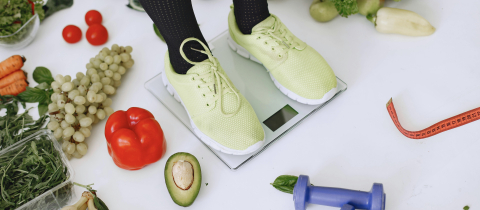Bananas, like most fruits and vegetables, are high in potassium and low in sodium. We humans get much of our dietary sodium from sodium chloride, otherwise known as salt. While now common and almost ubiquitous, sodium was once rare in our diets and our kidneys have evolved a very efficient mechanism for conserving sodium and preventing its loss in our urine. The kidney will re-absorb about 99% of the sodium filtered through it, and consequently re-absorb a great deal of water as well, since water follows sodium through cell membranes. The salt intake will also lead to the activation of a series of hormonal signals that regulate blood pressure. All this to say, it is pretty clear that as sodium intake rises, blood pressure rises as well.
Interestingly though, this simple relationship is not true for everyone. While some people are salt sensitive, some are not. However, as a general rule and in terms of the population as a whole, more sodium intake results in higher blood pressures. There has been some suggestion recently that very low sodium diets could be dangerous. It remains to be seen if other research groups find the same result in other projects.
So where does potassium come into this story? Firstly, people who have high potassium diets tend to have low sodium diets, and vice versa. Since potassium is found mainly in fruits and vegetables, and sodium found mainly in ultra-processed foods, it should not be difficult to see why this is the case. However, even on a molecular level, the relative amount of sodium and potassium in our diet affects how our kidneys handle both those ions.
When potassium intake in the diet is low, the kidneys tend to hang on to sodium thus raising blood pressure. However, when potassium intake increases, the kidneys let more sodium escape in the urine and blood pressure lowers. A Cochrane review summarized the available evidence and it seems clear that a diet rich in potassium (a.k.a. fruits and vegetables) lowers blood pressure.
So why not give people potassium to lower their blood pressure? Well a few reasons. First, liquid potassium tastes awful and potassium tablets are quite large and difficult to swallow. Many patients find them difficult to take. However, there are more fundamental reasons. Many blood pressure medications (and other types of medications too), can affect kidney function and raise potassium levels. Therefore, giving patients extra potassium tablets on top of that could raise potassium levels to dangerous levels and cause potentially fatal arrythmias. Finally, if the reason your potassium intake is low is not enough fruits and too much pre-prepared food, then the sensible option is to correct this dietary indiscretion.
But if potassium is found in most fruits and vegetables, is there anything special about bananas? The truth is, not really. Tomatoes, potatoes, and beets also have potassium and often more potassium than your average banana. Direct comparisons are hard because it depends a bit on the size of the fruit or vegetable in question, but the point is you can get potassium from many different sources. So given that most people do not consume adequate amounts of potassium, the best thing to do is eat more fruits and vegetables. And if you don’t like bananas, any other fruit will do.
Want to comment on this article? View it here on our Facebook page!







